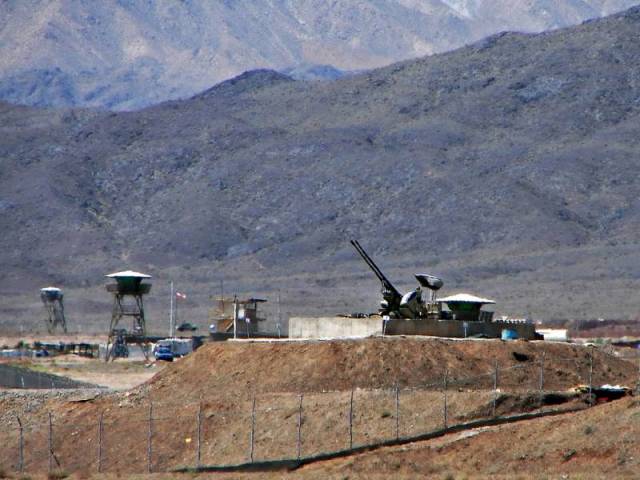 Natanz Plant
Natanz PlantIt is known that Iran has been working on its nuclear program for a long time. For this country, the possession of nuclear weapons could become a reliable defense in case of aggression from the "collective West". Although the authorities of the Islamic Republic are negotiating a nuclear deal, in parallel, the country does not abandon developments in the field of nuclear technology.
Thus, a confidential UN report on nuclear monitoring, according to Reuters, contains information about Iran's expansion of its uranium enrichment capabilities. According to the report, Iran is doing this rapidly, using advanced centrifuges. The process is carried out at an underground plant in Natanz.
After another attempt by the United States to negotiate with Iran came to an impasse, the country resumed development and commissioned a large number of centrifuges. They are prohibited from being used for the production of enriched uranium, but Tehran ignores this fact. The only centrifuge that, according to the agreement, Iran could use to increase its reserves of enriched uranium is the first-generation IR-1.
But now Iran has launched IR-6 centrifuges. They are much more efficient. UN experts consider these centrifuges to be the most advanced at Iran's disposal. The authorities of the republic have placed centrifuges at two underground plants – in Natanz and Fordo. These industrial facilities are well fortified and can withstand missile strikes and aerial bombardment.
The mining and processing plant in Natanz, in the province of Isfahan, acts as a kind of center of the Iranian nuclear program. The plant in Fordo, in the area of the city of Kum, is an even more classified object, information about which is very sketchy. Very little information can be found in open sources about these enterprises.
If the nuclear deal is renewed, Tehran will have to put the centrifuges in storage. But, on the other hand, it is unlikely that in the near future, given the current global situation, the nuclear deal will resume. Recall that Iran returned to the development of its nuclear program after the then US President Donald Trump withdrew the country from the nuclear deal in 2018 and re-imposed sanctions against Iran.
The authorities of the Islamic Republic rightly regarded such an action by Trump as a manifestation of US hostility to Iran and decided to return to development, since they understand that nuclear weapons can play the role of a kind of guarantor of Iran's security from possible aggression by the United States, as well as its regional allies in the person of Israel or the Arab monarchies of the Persian Gulf.
